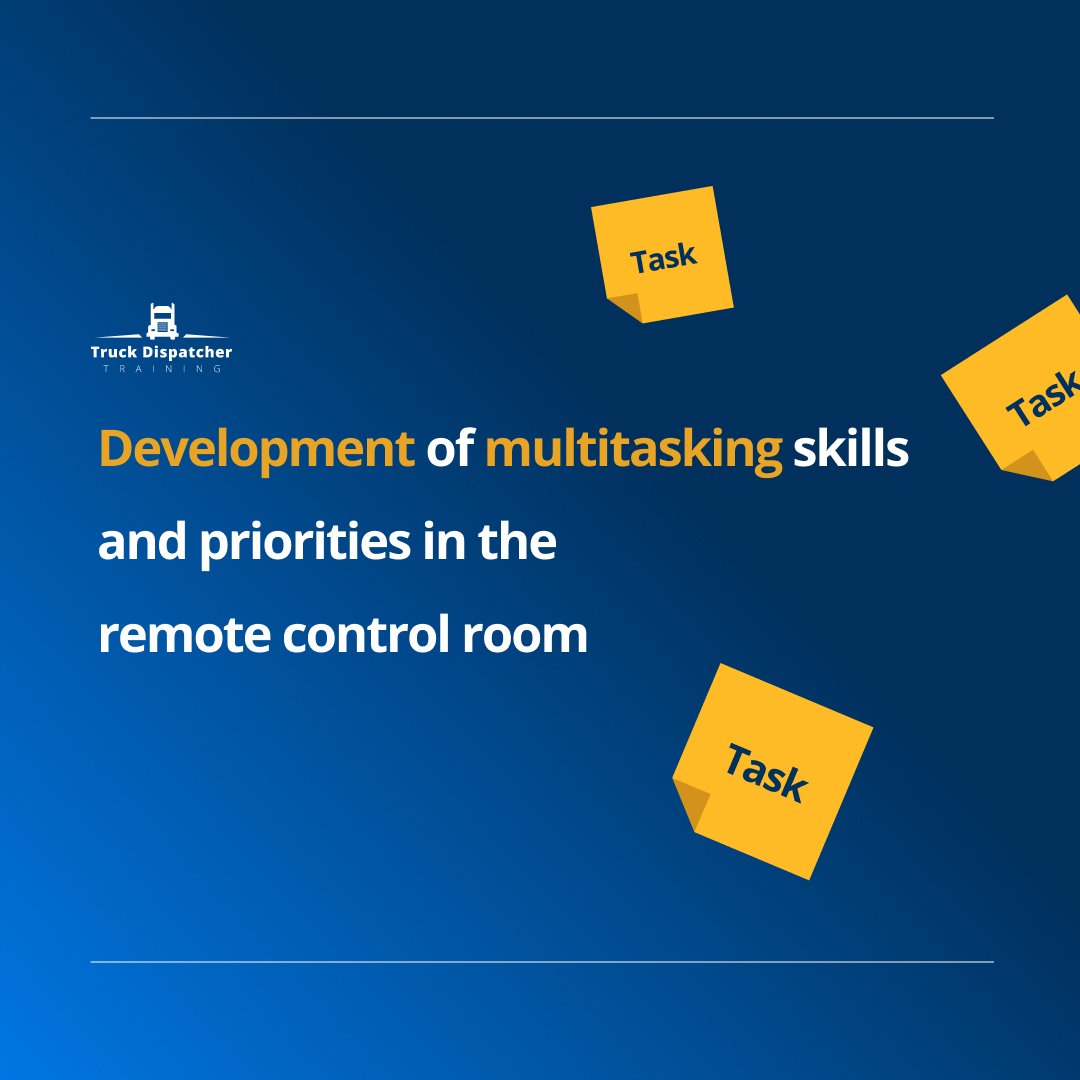
Developing Multitasking Skills and Prioritization in Remote Dispatch Operations
In today’s fast-paced and interconnected world, the remote dispatch industry has seen significant growth. The ability to efficiently multitask and prioritize tasks has become paramount for success in this field. Remote dispatchers are tasked with managing a wide range of responsibilities simultaneously, and honing these skills is essential for maintaining operational efficiency, customer satisfaction, and overall effectiveness.
Multitasking in Remote Dispatch: A Necessity
Multitasking involves juggling multiple tasks concurrently while maintaining accuracy and efficiency. In the context of remote dispatch, multitasking is a core competency. Dispatchers need to handle incoming calls, manage communication with field workers, monitor various systems, and respond to emergencies—all in real-time. As remote work becomes more prevalent, the need to excel in multitasking has become even more crucial.
Developing Multitasking Skills
Time Management: Efficient multitasking begins with effective time management. Setting clear time blocks for different tasks helps in avoiding overloading and ensuring that every task gets sufficient attention.
Prioritization: Knowing how to prioritize tasks is essential. Urgent matters like emergencies or critical system failures should take precedence over routine tasks. Develop a system for categorizing tasks based on their importance and time sensitivity.
Task Segmentation: Break down complex tasks into smaller, manageable sub-tasks. This approach prevents feeling overwhelmed and allows for better focus on each component of the larger task.
Tools and Technology: Utilize technology to your advantage. Use dispatch management software that streamlines communication and automates routine processes, enabling you to concentrate on higher-level tasks.
Maintaining Focus and Prioritization
Clear Objectives: Clearly define the objectives of each task. Knowing what you’re working towards helps maintain focus and enables better decision-making in terms of prioritization.
Eliminate Distractions: Create a dedicated workspace free from distractions. This helps maintain focus on the tasks at hand and minimizes the potential for errors.
Task Batching: Group similar tasks together and complete them in batches. This reduces mental context-switching and enhances efficiency.
Regular Breaks: Multitasking for extended periods can lead to burnout. Take short breaks to recharge, allowing you to return to tasks with renewed focus and energy.
Adapting to Remote Work Challenges
Communication Proficiency: Remote dispatchers need to be proficient in written and verbal communication. Clear and concise communication ensures that instructions are understood accurately.
Remote Collaboration: Collaborating with field workers and other team members remotely requires effective use of collaboration tools and platforms. Ensure you’re comfortable with these technologies.
Self-Discipline: Remote work demands a high level of self-discipline. Establish a daily routine that includes designated work hours, breaks, and personal time to maintain a healthy work-life balance.
In conclusion, the evolving landscape of remote dispatch operations necessitates the development of strong multitasking skills and effective prioritization strategies. By mastering these skills, remote dispatchers can not only ensure smooth operations but also enhance their own professional growth and satisfaction. The ability to navigate through a multitude of tasks while maintaining focus and accuracy is a valuable asset in the dynamic and challenging world of remote dispatch.
Our latest posts

Start your own truck dispatch business with expert tips and tricks| Truck Dispatcher Training
In our new video, we dive into the exciting world of trucking logistics in the USA. Our host sits do...

Effective methods of self-development in your career
Self-development is a vital aspect of one’s career growth and overall well-being. In todayR...

Modern training methods for freight dispatchers
In the fast-paced world of modern freight transportation, dispatchers play a critical role in ensuri...